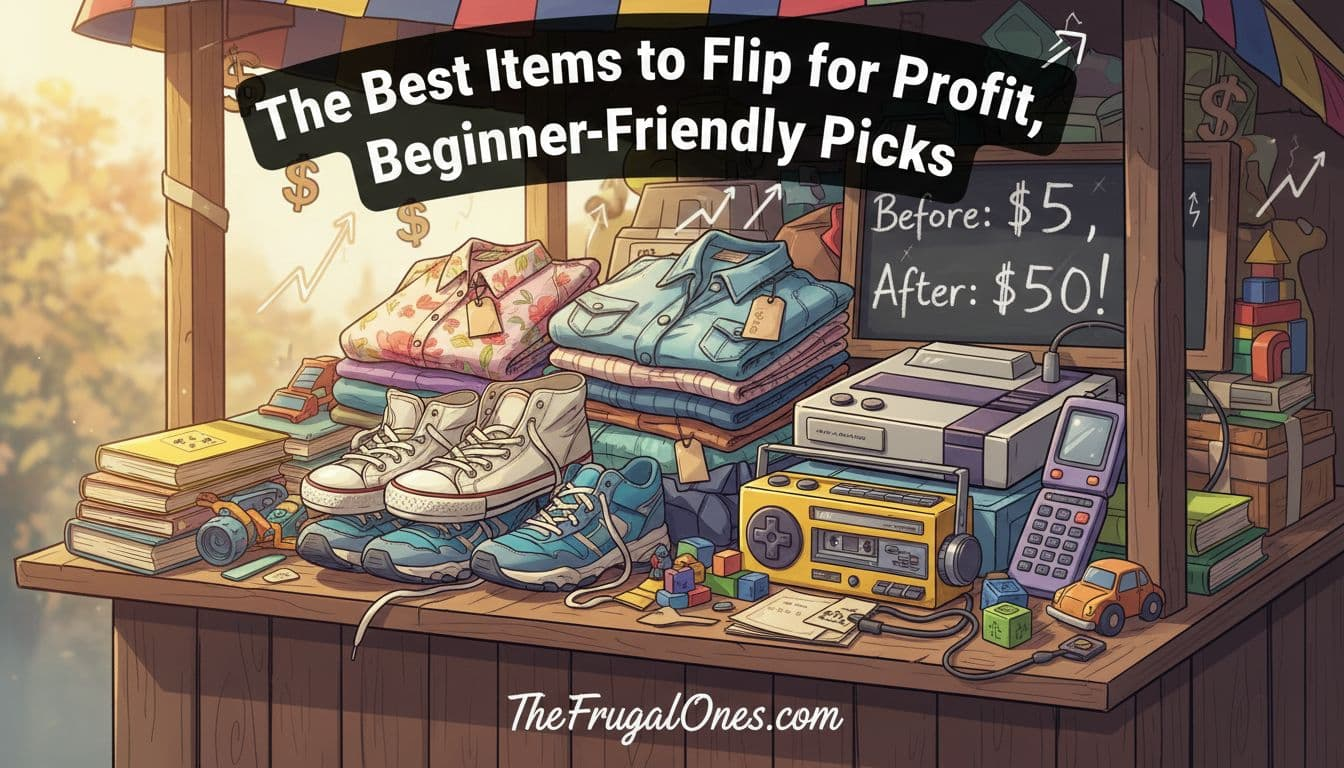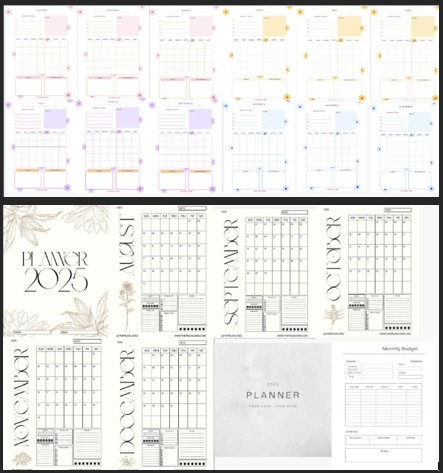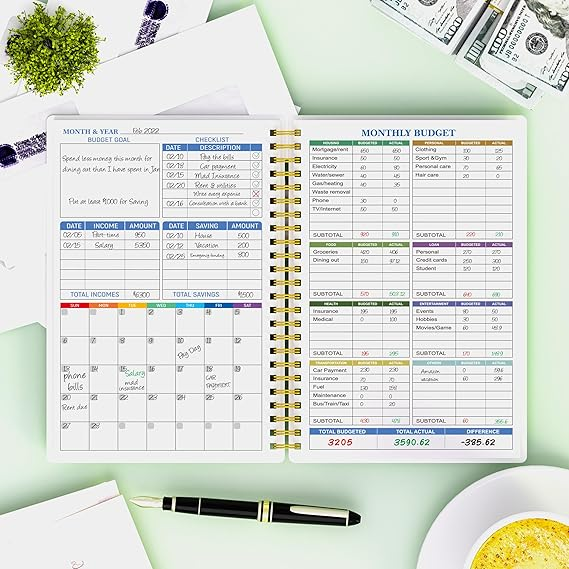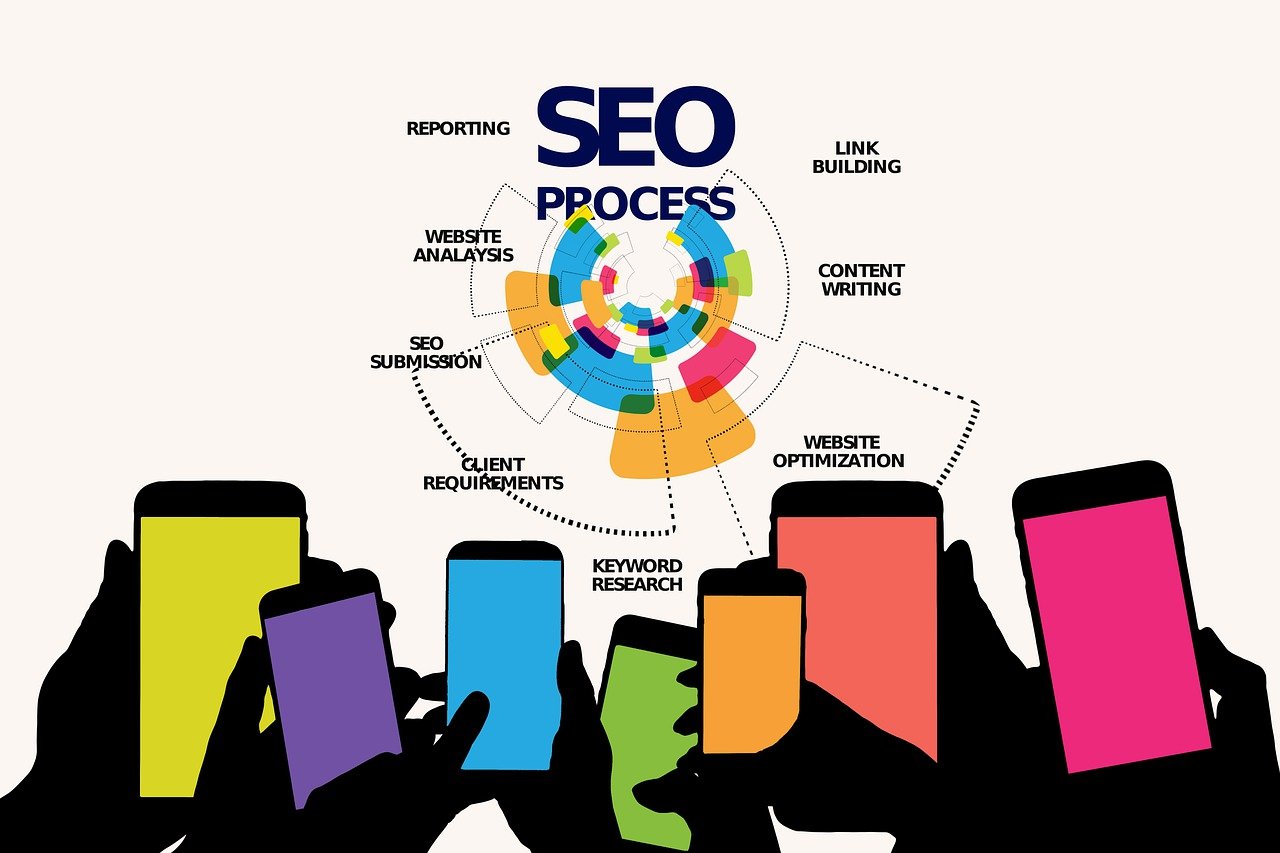Having the opportunity to make money with your ideas isn’t just a pipe dream anymore. Thanks to online platforms and new tech, practically anyone can turn a clever concept or specialized skill into steady cash flow. Whether you’re creative, detail-oriented, or just good at solving problems, there’s more than one path to a significant payday.
Today, it’s easier than ever to pitch an idea, sell a digital product, or offer your expertise right from home. You’ll find a huge mix of options—like launching an online course, publishing an ebook, renting out assets, or consulting in hot niches such as AI or cybersecurity. Many of these strategies pay far better than people expect, especially when you focus on high-demand skills or scalable products.
If you’re curious about how people are building multiple streams of income in 2025—while balancing work, life, and maybe even a little fun—read on. This guide is packed with proven ways to not just make a few bucks, but actually get paid well for what you know or create.
Get Paid For Your Ideas With These Companies!
Ever have a spark of inspiration and wonder if it’s actually worth something? You’re not alone. Major brands and specialized companies openly invite outside ideas, offering real cash, royalties, or licensing deals in return. Some want fresh new toys, others are hungry for household gadgets, and a few are after high-tech innovations. The key is knowing where to look—and where your concept might fit best.
If you’re ready to see your idea or invention come to life (and score a nice paycheck), here are standout companies you should have on your radar.
 Photo by RDNE Stock project
Photo by RDNE Stock project
Consumer Brands That Actively Pay for Ideas
Some of the world’s biggest companies have structured programs to review, buy, or license outside concepts. Here are a few that have paid inventors for ideas (sometimes turning unknowns into everyday names):
- 3M: Well-known for its innovation-first mindset, 3M welcomes ideas that solve real problems for consumers or industry pros. If they’re interested, expect a royalty-based payment.
- Unilever: Whether it’s food, home, or personal care, Unilever scouts for ideas that can be scaled. Inventors receive either lump-sum payments or ongoing royalties.
- Henkel: This consumer and industrial giant offers partnerships and royalties if your product idea fills a genuine need in their portfolio.
- Colgate-Palmolive: Dedicated to personal and home care products, Colgate-Palmolive is open to unique concepts with protected intellectual property.
- General Mills: Regularly runs open innovation programs for breakthrough foods and packaging ideas, often offering compensation or a licensing agreement.
What they’re looking for:
These companies want fully formed ideas (not vague dreams). The more you can back up your concept with market research and, ideally, a prototype, the more seriously they’ll take you.
Household Products & Everyday Solutions
If your idea makes life easier, faster, or simply more fun at home, these brands want to hear from you:
- Oxo: Known for practical kitchen gear and tools, Oxo rewards functional designs that solve everyday pain points.
- Jokari Home Solutions: Specializes in household hacks and organizational products. If your idea can be prototyped, Jokari’s team takes a hands-on approach—sometimes with mentorship.
- FastCap: Focused on tools and workplace efficiencies. Offer a unique fix for their customer base, and they might cut you a profit-sharing deal.
- New Soda: Pays royalties for original kitchen gadgets (no heavy manufacturing experience needed).
- All Star Innovations: Seeks out-of-the-box problem solvers and rewards with both royalties and business support.
Tip:
Document your process with sketches, videos, or patent applications before submitting. Companies respond best to clear, actionable proposals.
Sports, Toys, and Recreation
Some of the most fun inventions come out of the toy and recreational market. Even if you’re not a professional designer, these brands are approachable:
- Hasbro: The global toy powerhouse regularly licenses new game ideas, with royalty rates based on product success.
- Fat Brain Toys: Young inventors and professionals welcome. Fat Brain works closely with creators and pays per product sold.
- Wham-O: If you’ve ever had a wild outdoor game idea, Wham-O just might bite—and they’re known for excellent royalty structures.
- Spin Master, Zing, and Far Out Toys: Seekers of novelty and “wow moments.” Submit your concept and see if it clicks.
- Wilson & Escalade: Always searching for improvements or new spins on sports gear, especially concepts with a prototype or patent.
Breakdown:
Consider what makes your toy, game, or gear unique. If you can show how, it stands out from anything on the shelf, your odds of landing a deal improve dramatically.
Medical, Tech, and Industrial
If your ideas fall into the more technical side, there are brands ready to pay up—if the innovation can be proven:
- BD (Becton Dickinson): Global leader in medical technologies, BD purchases and licenses new healthcare solutions.
- Medtronic & Applied Medical: Accept concepts for medical devices or instruments that improve care and safety.
- Stanley Black & Decker, Bosch: Innovative home and industrial tools are always in demand—both companies are open to external inventions and handle licensing directly.
- Eco-Products: Pays inventors for solutions that repurpose single-use plastics or advance sustainable living.
Note:
Understand the regulatory or safety hurdles your idea may face. Technical validation, patents, or prototypes move your submission up the queue.
Online Marketplaces & Idea Brokers
Not all companies make or sell products. Some exist to connect idea people with manufacturers or investors:
- Quirky: Crowdsources votes and feedback on new concepts, then pays inventors whose ideas launch into the market.
- Invention City: A trusted name for inventors seeking licensing deals without all the red tape.
- Idea Buyer & Flippa: Whether you’ve got a patented product or a domain, these marketplaces let you list and sell your idea directly.
- Kikkerland: Known for quirky and modern home goods, this company scouts globally for the next clever gadget—compensation often comes as licensing deals or lump sums.
If you’re not sure about paperwork or negotiation, these platforms often provide support through the process, leveling the playing field for newcomers.
With so many companies actively scouting for outside thinkers, there’s real money to be made by pitching your ideas—no suit-and-tie required. Every company has its quirks and sweet spots, so take some time to find where your idea fits best, package it well, and hit send.
Companies That Pay for App Ideas
If you’ve ever wondered whether you can get paid just for your app idea, you’re on the right track. While selling an app concept outright to big tech companies like Apple or Google is rare (they prefer finished products or startups with traction), there are still companies and platforms actively looking to back innovative mobile app ideas. With the right approach—meaning a clear pitch, market validation, or a working prototype—you can find companies and funds willing to invest in or buy your idea.
Here’s a list of companies and platforms worth checking out if you want to get paid for your app ideas.

Photo by ThisIsEngineering
Mobile App Fund
If you have a prototype or a solid concept, Mobile App Fund focuses on investing in early-stage app ideas with big potential. They don’t just hand over money for a vague idea—they want apps that solve real problems or tap into growing trends like health, finance, or entertainment. When accepted, you’ll receive funding plus mentorship to help turn your idea into a market-ready app. It’s a great option if you want both capital and guidance to scale your app quickly.
King
Known for hits like Candy Crush, King is open to partnering or acquiring mobile game ideas with strong user engagement possibilities. They rarely buy raw concepts but will work with developers who bring playable prototypes or proven mechanics. If you have a fun, addictive game idea, pitching here could land you a royalty deal or even a lump-sum acquisition. Prepare to show how your game stands out in mechanics, monetization, or user retention.
IdeaPros
IdeaPros is a platform where inventors bring their app ideas or tech projects. They help you develop your app from concept through to launch by connecting you with skilled developers, designers, and marketers. Instead of just paying for your idea upfront, IdeaPros offers deals with shared royalties once the app is live and earning. This is a solid avenue if you want hands-on help turning your idea into a product, but don’t yet have the budget for development.
Supercell
The Finnish powerhouse behind Clash of Clans and Brawl Stars scouts for exceptional gaming ideas, especially those with multiplayer or social gaming elements. Supercell prefers startups or teams with prototypes and a passion for community-driven games. They can offer investment, mentorship, or outright acquisitions if your app proves innovative and scalable in the gaming space.
Apple
Apple doesn’t buy app ideas or accept unsolicited concepts. Instead, it focuses on apps that developers build and publish on their platforms. So, the best way to get paid through Apple is to develop a working app yourself and monetize it on the App Store. That being said, Apple sometimes partners with startups that have proven ideas and products during accelerator programs or developer contests.
Like Apple, Google won’t pay for raw app ideas. What they do offer is support through programs like Google Play’s Indie Games Accelerator or Google for Startups. These provide mentorship, marketing help, and sometimes funding for apps that are already somewhat developed. If you’re confident in your concept, building a solid prototype before approaching Google’s programs increases your odds of support and exposure.
GungHo Online Entertainment
This Japanese company targets mobile game ideas with unique gameplay mechanics or thematic twists. GungHo prefers ideas that appeal to casual and mid-core players, offering licensing deals or partnerships that include profit sharing. They take fun seriously and want games that keep people coming back day after day.
ArtJoker
Unlike the others, ArtJoker is a development agency that partners with app idea owners who lack the technical skills to build their vision. They accept app concepts and provide end-to-end development services, for which they get paid either as a flat project fee or through revenue sharing. If you’ve got the idea but not the coding chops, ArtJoker can help turn your vision into reality while providing compensation down the line.
Knowing where your app idea fits can make a huge difference in whether you get paid upfront, through royalties, or funding support. Be ready to explain how your app solves a problem or catches a trend, back it up with research or demos, and lock in terms with clear agreements. Turning your app idea into income is more about showing its value than hoping someone will buy a sketch on a napkin.
If you’re serious about monetizing your app ideas, these companies offer a mix of funding, partnership, and development deals that can get you closer to a payday.
53 Companies That Pay For Invention Ideas
If you’ve ever caught yourself wondering whether your idea could be worth something, you’re on the right track. Many companies actively seek fresh invention ideas and are willing to pay honest money for those that fit their mission or product line. Whether your idea fits in electronics, household gadgets, toys, sports gear, or medical devices, there’s a company ready to listen—and pay well.
Below, you’ll find a detailed list of 53 companies that purchase invention ideas, including how to submit your idea, what they look for, and the kinds of products they prefer. Making a clear, well-documented submission can set you apart and help turn your idea into a source of steady income or royalties.
1. Sharper Image
Sharper Image focuses on innovative home electronics, gifts, and lifestyle products. They constantly seek the next big thing through their dedicated startup and partnership ventures.
To submit:
- Provide a product description.
- Include photos, videos, or mock-up drawings.
- Add your contact details.
- If previously sold, include sales records.
Email your idea to [email protected].
2. Get Paid For Your Ideas – 3M
3M is known for diverse industrial and consumer products driven by innovation. They invite idea submissions aligned with their research and development goals.
Visit 3M’s Submission page for terms, then submit for evaluation.
3. Henkel
Henkel leads with adhesives, coatings, and consumer brands like Dial and Persil. Their Innovation Partnership Programs (HIPP) reward fair shares of royalties to those with novel technologies or patents.
Check Henkel Innovation Partnership Programs for your chance to collaborate.
4. Jokari Home Solution
Jokari buys ideas for kitchen gadgets, home storage, and organization. They prefer products that simplify everyday life.
Submit via their Inventor’s page and await contact from their team.

5. Under Armour
This athletic apparel brand accepts ideas that improve athlete performance, limited to U.S. inventors.
To submit:
- Title your idea.
- Share email, name.
- Describe the idea.
- Specify the category (apparel, footwear, etc.).
Submit at Under Armour’s Innovation Ideas Submission page.
6. Idea Buyer
Idea Buyer partners with inventors to market ideas through big retailers like Walmart and Amazon.
How it works:
- Submit idea online.
- Their team evaluates.
- If accepted, joint venture offer follows.
- Collaboration leads to market launch.
Learn more on Idea Buyer’s website.
7. Get Paid For Your Ideas – BD
BD specializes in medical tech that enhances clinical care.
Submissions require printing their Consideration of Suggestions document and mailing it to:
Office of New Product Suggestions
BD, 21 Davis Drive – PO Box 12016, Research Triangle Park, NC 27709-2016
Visit BD’s New Product Idea page to get started.
8. Wilson
A big name in sports gear, Wilson encourages ideas in the sporting niche, rewarding successful innovations.
Submit via Wilson’s Idea Portal to get noticed.
9. Get Paid For Your Ideas – Escalade
Escalade makes sporting equipment like table tennis and archery gear.
Submit new product ideas online via their idea submission form.
10. Dorman Products, Inc.
If automotive improvement ideas are your strength, Dorman is open to aftermarket repair innovations.
Submit ideas through Dorman’s New Product Idea page.
11. Eco-Products
Eco-Products focuses on biodegradable food service goods with a zero-waste mission.
Green innovators can submit ideas at their Submit an Idea page.
12. Play with a Purpose
This toy company targets active, educational toys for kids.
Submit new product ideas via their Contact Us page—select “New Product Idea” from the subject dropdown.
13. Far Out Toys
A fast-growing toy brand, Far Out Toys welcomes inventors with new game and toy concepts.
Fill out their submission form on their Contact Us page.
14. Fat Brain Toys
Known for educational and open-ended toys, Fat Brain Toys accepts:
- Samples with product info mailed to their address, or
- Photos and details emailed to
[email protected].
Address:
Fat Brain Toys
Attn: Product Reviews
20516 Nicholas Circle, Elkhorn, NE 68022
15. Wham-O
Invented the hula hoop and Frisbee, Wham-O looks for imaginative toy ideas for active play.
Submit ideas on Wham-O’s Idea Submission page.
16. Hasbro
Famous for board games and toys like Monopoly, Hasbro requires:
- Personal info (must be 18+).
- English description with details and materials.
- Product category selection.
Submit through Spark Hasbro.
17. Get Paid For Your Ideas – Zing
Zing makes toys promoting outdoor play and healthy lifestyles.
Submit your proposal via their Inventor Relation page.
18. Dr. Brown’s Baby
A leading baby product company looking for innovative baby care ideas.
Submit relevant ideas aligned with their business focus through their site.
19. Mustang Survival
Known for marine safety and outdoor gear, Mustang Survival wants new, commercially viable working products.
Submit through their New Product Idea Submission page.
20. Unilever
Global consumer goods leader with brands like Dove and Ben & Jerry’s.
Submit ideas addressing specific challenges such as climate or health on the Unilever Open Innovation Portal.
21. Spin Master
Developer of PAW Patrol and Rubik’s Cube, Spin Master invites public submissions.
Contact [email protected].
22. Get Paid For Your Ideas – Oxo
Oxo produces kitchen and houseware utensils designed for ease of use.
Acceptable submissions include drawings, photos, videos, or website links. Details at Oxo Inventor Submission.

23. Flippa
Flippa is an online marketplace for selling websites and digital products, ideal for app ideas turned products.
Small listing fees apply. Follow Flippa’s guide for sellers.
24. Tiny Love
Baby product innovator focused on developmental toys.
Submit ideas through their New Idea page.
25. New Soda
A company that turns kitchen product ideas into prototypes and royalties.
Steps to get paid:
- Submit idea.
- Review.
- Prototype.
- Packaging selection.
- Buyer exhibition.
- Receive commission on sales.
26. FastCap
Woodworking tools company paying 2-5% royalties.
Submit ideas via email: [email protected].
27. Crown
Leading rigid packaging maker accepting product and process innovations.
Submit at Crown’s Innovation Page.
28. Hillman Group
Hardware fastener industry leader looking for fresh ideas.
Submit via their invention submission form.
29. All Star Innovations
Consumer products company including Snuggie and Magic Mesh.
Seek ideas to become the next big consumer product. Follow the four-step submission on their site.
30. Nautilus, Inc
Home fitness equipment maker for patented ideas.
Mail to:
Nautilus Innovation Center
17711 SE 6th Way
Vancouver, WA 98683
31. General Mills
Brands like Cheerios and Betty Crocker want new product or tech ideas.
Send ideas to [email protected] or call 1-800-248-7310.
32. Oak Patch Gifts
Fun gift ideas wanted; inquire through their contact form.
33. Coleman
Outdoor recreation leader accepting gear ideas via their contact center.
34. LEGO
Submit your own LEGO set ideas to earn 1% royalties if commercialized.
Start submitting on LEGO’s idea webpage.

35. SKLZ
Athletic skill and training product company seeking viable sports gear ideas.
Contact SKLZ on their site.
36. New Balance
Sports footwear/apparel giant accepts patented ideas related to their core business.
Send submission form and materials via email or mail.
37. Stanley Black & Decker
Power and hand tools manufacturer. Submit patented ideas to [email protected] with contact info and patents.
38. Spectrum Brands
Consumer products and pet care company open to ideas in specific categories.
Submit via their online form.
39. WillowWood
Prosthetic product innovator accepting submissions to improve amputee mobility.
Learn more and submit online.
40. Get Paid For Your Ideas – Hershey
Ideas for new snacks and treats sought. Submit via Hershey’s submission channels.
41. Coca-Cola
Submit drink concept ideas through their Idea Submission page.
42. Bosch
Known for power tools and appliances, Bosch looks for eco-friendly, innovative ideas.
Submit on their Innovation page.
43. Kikkerland
Design company pays up to 5% royalties for selected product designs.
Submit your design idea for consideration.
44. Quirky
Crowdsources ideas monthly and pays 1.5% royalties on sales if selected.
Submit on Quirky’s site.
45. Invention City
Helps inventors with licensing deals earning 1-5% royalties, plus revenue sharing.
Free submissions; optional $95 review.
46. DJO
Specializes in orthopedic and rehab products; accepts health-related ideas.
Submit online or contact them.
47. Fila
Athleisure brand accepts patented idea submissions by mail at their NYC legal address.
48. Reckitt
Health and hygiene giant (Dettol, Durex) open to innovative ideas via their website.
49. Rico
Wholesale sports gifts manufacturer accepting ready-to-go product submissions by mail.
50. Philip Morris International
Tobacco and next-gen smoke-free products company taking idea submissions.
51. Avery
Office and label supplies manufacturer accepting patented product ideas by email.
52. Lear
Automotive seating and electronic systems tech company reviewing innovative ideas online.
53. Medtronic
Health tech leader accepts medical device ideas through their online portal, also offers research funding.

Photo by Nikolai Ulltang
This is your go-to list for companies open to invention submissions, covering a wide range of industries, product types, and compensation models. Preparing a clear, professional idea package tailored to company requirements often makes the difference between silence and a new partnership. Start drafting your best presentation and turning your ideas into income today!
Companies That Pay for App Ideas
If you’ve got a strong app concept and wonder how to turn it into cash, you’re not imagining it. Several companies and platforms actually pay for app ideas—especially when you back those ideas with some proof that they’ll succeed. Getting paid for an app idea might feel tricky, because big names like Apple or Google usually prefer finished apps or startups, not raw ideas alone. Still, with the right pitch, a clear value proposition, and maybe even a prototype, you can find organizations ready to help you build, fund, or even buy your app.
Below are companies known for buying or funding app ideas, or at least offering ways to cash in on your app concepts. These are worth exploring if you want to turn a good idea into a steady pay stream or partnership.
1. Google
Google Play Store is one of the largest marketplaces where you can sell a developed app. Millions download apps daily, giving developers access to huge audiences. While Google itself doesn’t often buy raw ideas, it supports app creators with developer programs and investment opportunities if your app is already in progress.
On average, you can expect about $0.004 per download depending on how you monetize (ads, in-app purchases, or premium sales). If your app isn’t developed yet, it doesn’t hurt to reach out and see if Google might invest in your idea, especially if it fits their emerging tech or market goals.
2. Mobile App Fund
Mobile App Fund focuses on funding promising app ideas, investing anywhere from $5,000 up to $1 million. They invest in development, deployment, and marketing, making them a great partner for those who need more than just cash—they provide expertise and resources.
Once your app hits the market, you share the profits, so it’s a true partnership. Submit your idea on Mobile App Fund’s Submission Page, but make sure your concept is solid and market-ready to boost your chances.
3. King
Creators of Candy Crush Saga, King is always scouting for the next addictive game idea. They’re mainly interested in game apps with staying power and user engagement potential.
If you have a fun game concept, reaching out through King’s Contact Us page is a smart move. Be prepared to present game mechanics and a prototype since they don’t usually buy bare ideas but invest in promising projects.
4. IdeaPros
IdeaPros helps inventors monetize their app ideas by teaming up to build, launch, and distribute apps. They act as your strategic partner to bring your idea to life and earn money from it.
Submit your app idea on their website, and they offer a free evaluation to see if your concept has potential. If accepted, you’ll work together on development, sharing revenue once the app is live.
5. Supercell
Famous for Clash of Clans, Supercell is open to new game ideas that emphasize social and multiplayer play. They prefer startup teams with a prototype, but if your idea shows promise, you can connect with them through social media or their website to explore collaboration.
Their success with hit strategy games means they look for ideas that keep players engaged long term, so focus on mechanics that encourage active, competitive play.
6. Apple
Like Google, Apple’s App Store is a prime channel for selling developed apps. Apple rarely buys app ideas outright, but if your app is highly innovative and market-ready, you can try contacting them about partnerships or acquisition.
They also host developer contests and accelerator programs where standout apps or teams can win funding or support—but they do not accept unsolicited ideas, so be sure your app is polished and ready before approaching.
7. GungHo Online
GungHo Online is a Japanese game developer known for Ragnarok Online and other titles. They seek fresh game app ideas tailored to casual and mid-core players.
They don’t have an official submission form, but you can reach out directly via their Contact Us page. When contacting them, highlight what makes your idea unique and why it fits their player base.
8. ArtJoker
If you have an idea but lack the tech skills to build it, ArtJoker might be the solution. They specialize in web and mobile app development and welcome new ideas.
Reach out to ArtJoker to discuss your app concept. They can take your idea from concept to creation, offering payment options including flat fees or revenue sharing.

Photo by RDNE Stock project
Finding companies willing to pay for your ideas is just the start. The key is showing your idea can solve real problems or entertain well, backed with some proof. Whether you want funding, development support, or a straight buyout, these companies offer multiple ways to turn your app dreams into paying projects. Keep your pitch clear, do your homework, and prepare to move fast—because the right company might pay handsomely for your next big app idea.
Must Ask Questions To Get Paid For Your Ideas
Turning an idea into money isn’t just about having a good concept. The real key is asking the right questions early on. This sets a clear path forward and helps you avoid common pitfalls. Think of these questions as your compass, guiding you through whether your idea can make it in the market and earn for you. Before you pitch or invest time, these questions will save you wasted effort and boost your chances of landing a solid deal.
1. Is The Idea New?
Your idea needs to stand out, or at least offer something fresh. If it’s something already out there, getting paid for it becomes tough. Fortunately, you don’t have to be a detective. A quick check on Google Images or Google Shopping can reveal if anything similar exists. No matches? That’s a green light to explore further.
This simple step helps you avoid obvious duplicates and might even inspire you to add unique twists. Remember, the goal isn’t just originality for originality’s sake. It’s to know if your idea fills a gap or improves on what’s already available.
2. Is The Idea Patented?
Before dreaming about royalties or sales, check if someone else holds legal ownership of your idea. Patent infringement is a costly mistake. The United States Patent and Trademark Office (USPTO) offers a comprehensive database where you can run patent searches.
You can also use Google Patents for a more user-friendly approach to scanning existing patents. A clean search means you won’t be stepping on anyone’s toes and that your idea has a better commercial chance.
3. How Big Is The Market For Your Idea?
Size matters when it comes to market potential. Companies hesitate to invest in ideas with tiny audiences because the production and marketing costs won’t pay off. Consider who would buy your product, how many potential customers there are, and how much they might spend.
The broader and more relevant your market, the more attractive your idea becomes. If you target a narrow niche, make sure it’s profitable enough to justify development costs. Conduct market research, look at trends, and gauge demand. This step is crucial for convincing companies to commit.
4. Is Your Idea Easily Explained?
An idea that’s hard to explain won’t get far. Companies want products that sell themselves or can be explained quickly and clearly to customers. If you struggle to describe how your idea works or why it benefits users in a few sentences, rethink it.
Simplifying your pitch helps potential buyers and users understand value instantly. If your concept requires detailed training, that could add extra costs or slow adoption—both turn-offs for businesses.
5. Will It Be Expensive To Manufacture?
Profitability depends heavily on manufacturing costs. If your idea is complex or uses costly materials, producing it at scale may not make financial sense. Companies need to ensure your product can compete on price without sacrificing quality.
Keep simplicity in mind as you design or refine your idea. Sometimes, less is more: a simple, effective product often trumps a complicated one, thanks to lower production expenses and easier market acceptance. Consider materials, processes, and assembly when estimating costs.

Photo by DS stories
Get Paid For Your Ideas FAQs
Turning your ideas into cash can feel like trying to catch lightning in a bottle. That’s why having clear answers to the most common questions can save you time, help you avoid costly mistakes, and get you closer to actually earning from your creativity. This FAQ section covers what most people wonder about when they think, How do I get paid for my ideas? and offers practical guidance that aligns with real-world experience.
How Do I Know If My Idea Has Value?
Before anything else, assess whether your idea is new and useful. Check if similar products or services already exist through a quick online search or browsing marketplaces. If something similar is out there, think about how your idea improves or differs from it. Value often comes from a fresh spin or solving a problem better than existing options.
Experts say market demand is critical. The bigger and more eager the audience, the more likely your idea can turn into paychecks. If your idea targets a very small or unfamiliar market, you’ll want to dig deeper to prove people want it before investing a lot of time.
What Steps Should I Take to Protect My Idea?
Protection is key for turning ideas into money. Start with documenting everything—sketches, notes, prototypes, test data—because solid records establish your ownership. Then, consider applying for a provisional patent, which is an affordable way to claim “patent pending” status for up to a year. This can give you a head start while you explore licensing or manufacturing.
If getting a formal patent feels complex or costly, don’t stop there. Non-disclosure agreements (NDAs) help when sharing details with companies or partners. Copyrights or trademarks protect branding and creative parts of your concept. The right legal tools help keep your idea secure and increase its value during negotiations.
Can I Get Paid Upfront or Only Via Royalties?
Both payment types are common, and each has pros and cons. Upfront payments provide immediate cash but often less overall, since you’re selling full rights or a license to the idea. Companies like ease and quick deals to reduce risk on their side.
Royalties, on the other hand, are ongoing earnings based on sales or usage. They reward you for long-term success but require patience as your idea gains traction. Sometimes you’ll get a combination—an upfront fee plus smaller royalties later. Knowing your comfort zone with money upfront vs. risk and reward over time helps structure better deals.
How Do I Find Companies That Will Buy or License My Ideas?
Explore companies that actively seek innovation in your idea’s field. Consumer brands, toy companies, tech firms, and industrial manufacturers often have open submission programs or innovation portals. Idea marketplaces and invention brokers are alternatives if you want help connecting with buyers.
Do some homework. Read submission guidelines carefully so you don’t waste time sending ideas where they’re not accepted. Networking with inventors, attending trade shows, or joining innovation groups can reveal opportunities too. Persistence counts: not every pitch lands a deal, but each effort sharpens your approach.
What If I Don’t Have a Prototype?
While prototypes add credibility, not every company requires one. Some accept detailed drawings, digital mockups, or even thorough concept descriptions. The key is showing your idea’s value clearly and how it solves a problem or fits a market.
That said, a prototype or demo whenever possible makes it easier for companies to evaluate your idea seriously. When you don’t have the skills to build it yourself, consider partnering with designers or inventors who can help bring your concept to life before pitching.
How Long Does It Take to Get Paid for an Idea?
Expect patience. The process from idea submission to payment can take months or even a couple of years. Companies need time to evaluate, test, manufacture, and promote new products. Licensing deals especially move slowly since revenue depends on product sales.
Don’t rely on instant paychecks. Instead, focus on preparing a solid pitch package and exploring several buyers simultaneously. Having multiple options increases your chances of quicker returns.
Do I Need a Lawyer or Expert Help?
While not mandatory, having a patent attorney or licensing expert review your idea protection and contracts is a smart move. They can spot pitfalls, draft better terms, and help you avoid signing away too many rights.
Many inventors also use consulting services to improve pitches, conduct market research, or learn negotiation tactics. At the very least, seek free resources or community feedback to strengthen your chances.
Are Online Platforms Reliable Places to Get Paid for Ideas?
Yes, but with caution. Platforms like idea marketplaces, crowdfunding sites, or invention contest hubs can open doors to monetization. They offer options to sell ideas, access investors, or raise funds.
However, read terms carefully and avoid upfront fees that seem excessive or vague promises. Research each platform’s reputation by reading reviews or talking to past users. Online platforms work best as part of a broader strategy—combine them with direct company submissions or professional advice.

Photo by fauxels
Getting paid for your ideas requires clear thinking, protection, and a realistic strategy. These FAQs are just the starting point to help you understand what to expect and how to prepare your ideas for the best payout. Keep your questions sharp and your goals clear to turn your creativity into cash.
How Can I Get Paid For My Ideas?
You’re sitting on a goldmine—your ideas. But the real question is: how do you turn those flashes of insight into actual cash without getting lost in complicated processes or empty promises? The answer is simpler than you might think. Companies across various industries actively seek fresh ideas and are ready to pay inventors or creators who bring genuine value. The secret is knowing where to pitch, how to protect your concept, and what companies expect before offering a deal.
Whether you have a rough sketch, a prototype, or just a fully fleshed-out concept, there’s a path for you. Let’s break down the main routes to get paid for your ideas, so you know exactly what to do next.
Find Companies That Buy or License Ideas
Many established companies have formal channels to accept outside ideas. Some prefer outright purchase, others opt for licensing deals that pay you royalties as the product sells. Here’s how to spot them and prepare:
- Look for fit: Big consumer brands tend to focus on categories like household products, sports gear, health, or tech. If your idea matches their domain, you have a stronger shot.
- Submit professionally: Prepare a clear, concise pitch that includes drawings, prototypes, or market research. Show why your idea solves a known problem or offers a unique advantage.
- Protect your idea: Before sharing details, secure intellectual property rights via patents, trademarks, or at least provisional patents and NDAs.
- Expect patience: Getting paid can take months or longer, so be ready for a process that involves evaluations, negotiations, and testing.
Here are some companies actively paying for invention ideas in 2025:
- Sharper Image: Home electronics, lifestyle gadgets, and gifts.
- 3M: Innovation-driven products with royalty potential.
- Henkel: Adhesives, home care, and personal products.
- Dorman Products, Inc.: Automotive repair parts and improvements.
- BD (Becton Dickinson): Medical and health technology.
- Jokari Home Solutions: Kitchen and household organization tools.
- Wilson: Sports equipment and gear.
- Eco-Products: Sustainable and biodegradable household goods.
Each company has its own submission process and preferences, so do your homework before applying. A well-prepared idea package tailored to the company’s niche gives you an edge.
Sell or License Your Idea Through Online Platforms
If going direct feels intimidating, online invention marketplaces offer a hands-on approach with built-in audiences and support. These platforms connect inventors with manufacturers, investors, and buyers who pay for ideas or help develop them. Some top choices include:
- Quirky: Crowdsources popular ideas and shares royalties.
- Invention City: Offers licensing deals and a range of support services.
- Idea Buyer: Helps market your idea to retailers and negotiates partnerships.
- New Soda: Specializes in kitchen gadget inventions and shares royalties.
- Flippa: Best for digital ideas like apps, websites, or software products.
These platforms often require you to upload detailed descriptions, images, or prototypes. They’ll guide you through steps like patent filing, marketing, and negotiation, making the journey manageable.
Partner or License Your Idea for Royalties or Upfront Payments
Payment structures vary. Some companies offer lump-sum payments for full rights to your idea, while others pay ongoing royalties based on sales. There can also be hybrid deals—an upfront fee plus royalties.
For example, 3M and Henkel often opt for royalties, which means continuing to earn as your idea sells in stores. On the other hand, platforms like Idea Buyer might offer upfront payments or partnership equity.
Understanding these differences helps you decide what is right for you—whether you want quick cash or long-term income.
Get an Agent or Broker to Help You Sell Your Ideas
If the submission process and negotiations feel overwhelming, consider working with an invention agent or broker. These professionals:
- Vet your idea’s potential.
- Match it to suitable companies or investors.
- Handle contracts and legal terms.
- Negotiate better deals on your behalf.
While they take a fee or commission, their expertise can fast-track your idea’s path to payment and avoid costly mistakes.
Build a Prototype or Demonstrate Value
Companies and buyers want to see your idea can work in the real world. Even a simple prototype or mock-up strengthens your position. It shows:
- You understand the product.
- You’ve considered practical use and production.
- Your idea avoids guesswork.
If prototyping feels out of reach, consider pitching with detailed visuals, CAD drawings, or videos explaining functionality. Some platforms and companies accept these alternatives but make sure you communicate your idea clearly.

Photo by Mikhail Nilov
There’s no one-size-fits-all method. You might sell directly to a company like Wilson or Henkel, license through New Soda, or bring your idea to life with an agent’s help to attract investors. The key is to be prepared, protect your idea, and target the right audiences. Then it’s a matter of persistence, professionalism, and patience—your idea can turn into real income.
How Do You Sell An Idea To A Company Without Them Stealing It?
Selling an idea to a company can feel risky. After all, you’re handing over something valuable—your creativity, your work, your next big possibility. A common fear is that a company might take your idea without paying you. The good news is, there are straightforward ways to protect yourself and make sure you get paid fairly without worrying about theft. These methods focus on legal protections, smart preparation, and clear agreements. Let’s explore the best ways to keep your idea safe while selling it.
Use Patents to Secure Your Idea
Patents provide the strongest legal protection for inventions. They give you the exclusive right to make, sell, or license your idea for a certain period, usually 20 years. If your idea is patentable (meaning it’s novel, useful, and non-obvious), filing a patent can prevent companies from copying or using your idea without permission.
Be aware, though: patents are expensive and can cost anywhere from $5,000 to $8,000 or more when including attorney fees. The process also takes time—often one to two years—so it’s a long-term investment.
- Why patent? It creates a legal fence around your idea.
- Tip: Start with a provisional patent to get “patent pending” status, which is cheaper and gives you a year to develop or pitch your idea while protecting it.
- Keep in mind: A patent is only as good as your ability to enforce it, so having one can deter companies from stealing your idea because legal consequences are clear.
Sign a Non-Disclosure Agreement (NDA) Before Sharing
An NDA is a contract that legally binds the company to keep your idea confidential. Before you pitch, have the company sign an NDA stating that they cannot use your idea without your permission or payment.
Here’s why NDAs matter:
- They give you legal recourse if your idea is misused.
- They make companies think twice before casually taking your concept.
- NDAs set clear boundaries and expectations ahead of time.
A few pointers for NDAs:
- Use an experienced lawyer to draft or review the NDA for your protection.
- Expect some big companies to refuse signing an NDA without negotiation, but many smaller businesses or startups will agree.
- Don’t share detailed documents or prototypes until an NDA is signed.
Document Everything Thoroughly
Before any pitch or meeting, keep records of your idea:
- Write detailed descriptions.
- Date and sign your notes or sketches.
- Email yourself a copy or send yourself a registered mail package describing your idea.
This kind of documentation creates a paper trail that proves you were the original creator. It may help in disputes or legal challenges.
Pitch the Value, Not Just the Idea
You want to show companies that your idea is more than just a concept—it has real value. Explain how it solves a problem, fits their market, or improves on what’s out there. The more you can show readiness (like a prototype, clear market fit, or research), the less likely they will try to steal your idea. Companies want to invest in winners, and they know that ejecutar ideas takes more than just copycatting.
Work with Trusted Partners or Agents
If you’re worried about dealing directly with big companies, consider working with an invention agent, broker, or trusted intermediary. These professionals help connect you with buyers while managing legal and business details, reducing your exposure to risky deals.
They can:
- Vet potential buyers.
- Ensure NDAs and contracts are in place.
- Handle negotiations professionally.
Know Your Rights and Get Legal Advice
Whenever you enter discussions about selling your idea, make sure you understand:
- What rights you’re giving away.
- How you’ll be paid (upfront, royalties, equity).
- What happens if your idea is misused.
Consult with a lawyer familiar with intellectual property and licensing before signing contracts. This investment can save you from losing control or money later.
Selling an idea doesn’t have to feel like handing over a treasure chest without a lock. By using legal tools like patents and NDAs, documenting your work, and preparing a strong pitch, you can protect yourself and make sure you get paid for your creativity. These steps help balance trust and caution, so your ideas stay yours until you’re ready to share—and get paid.

Photo by DS stories
Will Companies Pay For Ideas?
The short answer: yes, companies will pay for your ideas—but only if your idea adds real value. In 2025, businesses across industries continue to seek fresh innovations, new product concepts, and inventive solutions from individuals like you. They want ideas that solve problems, enhance user experience, or open new market opportunities. But it’s not as simple as sending an idea and cash instantly appearing. Companies look for clear benefits, protection in place (like patents), and some evidence of market interest before writing a check or offering royalties.
If you’ve ever wondered whether your idea—even a sketch or concept—is worth anything, you’re not dreaming. Plenty of firms have formal channels welcoming external submissions, licensing arrangements, and partnerships for inventions or ideas. These companies offer payments that range from upfront fees to ongoing royalties, sometimes combining both. You just need to know who’s open to your kind of idea and how to approach them the right way.
Below, we’ll explore how companies handle idea submissions, what kinds of ideas they pay for, and how the process works in practice. That way, you’ll understand when your idea can bring real money and how to make that happen.

Photo by Ron Lach
What Types of Ideas Get Paid?
Companies tend to pay for ideas that are concrete, innovative, and fit well within their existing or target markets. These can include:
- Consumer product innovations: Household gadgets, kitchen tools, personal care items.
- Technology and software concepts: App ideas, device improvements, user interfaces.
- Industrial or manufacturing solutions: Tools, processes, materials that improve efficiency or safety.
- Medical and health inventions: Devices, care products, or health tech innovations.
- Sports and recreation gear: New sports equipment or toys with demonstrated appeal.
The key is real value. If your idea lowers costs, improves health, delights customers, or fills a gap competitors haven’t touched, companies see potential. They want ideas that are ready or close to market use, not vague or half-baked inspirations.
How Companies Pay for Ideas
Payments vary depending on the company’s business model, the idea’s stage, and legal protection like patents. The main models include:
- Upfront purchase: You sell the idea outright for a lump sum. Simple but often smaller pay.
- Royalty agreements: You get a percentage of sales revenue after production. This can pay off big if the product sells well.
- Licensing deals: You allow the company to use your idea for a set term or geography, often with ongoing royalties.
- Joint ventures or partnership: You collaborate with the company and share profits or equity based on the idea’s commercial success.
Some companies pay for detailed prototypes or proof of concept, while others might accept well-documented ideas with patent protection. Always clarify payment terms before submitting.
Submission Processes and What to Expect
Each company runs submissions differently. Many operate online portals or innovation programs asking for:
- A clear explanation of your idea.
- Visuals like sketches, photos, or prototypes.
- Market research or data showing demand (if possible).
- Proof of ownership or patent filings.
After submission, expect:
- An evaluation period (typically 4 to 6 weeks or longer).
- Possible requests for more information, NDAs (non-disclosure agreements), or meetings.
- Offers to buy, license, reject, or a polite no-response (common).
Patience is crucial. Getting paid for an idea often involves long evaluation cycles, negotiations, and legal review.
Why Patent and Protect Your Idea First
Companies rarely pay for ideas unless you’ve taken steps to own your intellectual property. A patent or provisional patent signals you are serious and legally protected. It also deters companies from using your idea without compensation since patents give you exclusive control.
If patents are out of reach, use NDAs when sharing sensitive details or work with trusted invention brokers who can help shield your concept. Without protection, companies are hesitant to pay because the risk of theft or duplication is high.
Having a valuable idea puts you in a strong position, but knowing how to approach companies in 2025 is what turns it into actual income. Whether it’s household gadgets, tech solutions, or health products, companies remain eager to pay for ideas that deliver real-world benefits—when presented clearly, protected legally, and backed up with good research.
Stay tuned for more practical steps on submitting, protecting, and cashing in on your ideas in the next sections.
How Do I Sell My Idea To Google?
Selling an idea to Google isn’t as straightforward as walking into their offices with a sketch and asking for a check. This tech giant, like Apple and other large companies, does not typically buy raw ideas without proof of concept or intellectual property protection. However, that doesn’t mean your idea has no value or that Google is out of reach. To get Google’s attention and possibly get paid for your idea, you need a smart, practical approach grounded in preparation and protection.
Here’s how you can position yourself to sell your idea to Google and maximize your chances of getting paid.
Patent Your Idea First
If you want to pitch a product, feature, or improvement to Google, having a patent or at least a provisional patent is crucial. Why? Because Google operates in a highly competitive space, constantly innovating in areas like AI, search, cloud computing, and hardware. They’re unlikely to invest in or acquire ideas without legal proof that you own the intellectual property.
- File a patent application: This protects your invention or concept by giving you exclusive rights.
- Consider a provisional patent: It’s a less costly, quicker way to claim “patent pending” status while you test or develop your idea.
- Document everything: Keep thorough records of your creation process, designs, and communications to back your ownership.
The United States Patent and Trademark Office (USPTO) offers detailed guidelines for filing patents, or you might want an experienced patent attorney to help navigate the process.
Do Market Research on Your Idea
Before approaching Google, clarify why your idea matters and how it fits the market.
- Identify a specific problem your idea solves or an unmet need it addresses.
- Gather data on the potential user base or industry impact.
- Look into any existing Google products or competitors to highlight what makes your idea unique.
Market research strengthens your pitch; it shows Google that there is real demand and that your idea has potential to complement their ecosystem.
Increase Your Idea’s Visibility Toward Google
Getting your idea noticed requires more than just a patent and paperwork.
- Use professional platforms like LinkedIn or personal networks to connect with Googlers or relevant teams.
- Attend tech conferences or industry events where Google scouts for innovation.
- Share your idea carefully on platforms that allow for protected exposure or collaboration with technology communities.
Often, ideas that get noticed by major corporations are those that come with some traction, pilot customers, or meaningful buzz.
Promote Your Idea by Creating a Website
Having an online presence dedicated to your idea or prototype can demonstrate seriousness and readiness.
- Build a simple, clear website explaining the problem, your solution, benefits, and any progress (prototype, user feedback).
- Include a blog or updates section showing ongoing work, which reflects commitment.
- Use SEO and online marketing basics to attract organic interest and even potential partners.
A professional-looking site shows Google that this isn’t just a thought or concept—it’s a business opportunity.
Obtain Licensing for Your Idea
Rather than selling your idea outright, consider licensing. Licensing means you allow Google to use your innovation under agreed terms in exchange for royalties or fees.
- Licensing can be more profitable over time, especially if your idea lands in widely used products.
- It allows you to retain ownership and control while benefiting financially.
- Explore legal help to draft licensing agreements that protect your rights.
Google may prefer working with inventors or startups under license agreements, especially when the idea ties into existing product lines or services.

Photo by Pixabay
Getting paid by Google for your idea is challenging but doable when you treat your concept like a valuable asset. Protect it legally, support it with market research, build credibility online, and frame your pitch to show how it fits into Google’s goals. It’s a process that requires patience and professionalism—but with the right approach, your idea might be the next innovation Google wants to adopt.
Can You Sell An Idea For An Invention?
Selling an idea for an invention is definitely possible, but it’s not as simple as handing over a sketch and waiting for a check. Before you dive in, a few important things shape how—and if—you can get paid for your idea.
First, you’ll need to find a manufacturer or company interested in your concept. Companies don’t usually buy vague ideas; they want something tangible, tested, or at least well-documented. Think of your idea like a seed. Without planting it in the right soil and tending it carefully, it won’t grow into anything profitable.
Once you find the right company, there are two common ways to sell your invention idea:
Selling Your Idea Outright
This is the “one-and-done” approach. You offer your invention idea in exchange for a single lump-sum payment. The company takes full ownership, and you usually sign away rights to the design or concept.
- This method is quick. You get paid upfront, no strings attached.
- However, the payout can be lower compared to other methods, especially if your idea becomes a hit.
- It suits inventors who want immediate cash or don’t want to deal with long-term contracts.
Licensing Agreements
Licensing means you keep ownership but let the company use your idea, usually in exchange for royalties—money paid based on sales or usage.
- Licensing can provide ongoing income as the product sells.
- It keeps you connected to your invention, allowing further deals or extensions.
- Expect slower payments and need for regular updates or management.
Many inventors prefer licensing because the idea’s value often grows over time, and royalties can add up nicely if the product becomes popular.
Important Steps Before Selling
- Protect your idea: While not always mandatory, filing a patent or at least a provisional patent signals legal ownership and stops others from copying your invention.
- Create documentation: Detailed sketches, prototypes, or market research help convince companies your idea is worth investing in.
- Research companies carefully: Look for businesses aligned with your idea’s niche, whether kitchen gadgets, tech devices, or toys. Many big brands have submission portals or innovation programs to accept outside ideas.
- Prepare a professional pitch: Clearly explain how your invention solves a problem or improves existing products. Companies want ideas that fit their market and can make money.
Though it may sound straightforward, selling an idea is a process filled with research, preparation, and protection. But if done right, your invention idea can turn into real payouts.

How to Find Interested Manufacturers and Companies
Your idea is like a key: it can only open the right doors. Finding the right company often means targeting firms that produce similar products or operate in your invention’s category.
- Visit stores or online shops and note down brands that make products related to your idea.
- Check company websites for “submit your idea” sections or innovation portals.
- Use online invention marketplace platforms that connect inventors with buyers or licensees.
- Consider invention brokers or agents who specialize in matching ideas with companies.
Being selective improves your chances. Sending your idea to a random company might get ignored, but targeting aligned manufacturers shows professionalism and increases interest.
Selling Without a Prototype
While having a working prototype certainly boosts credibility, you don’t always need one to sell your idea. Detailed sketches, 3D renderings, or even videos explaining how your product works can suffice if they’re clear and convincing.
Some companies accept idea concept submissions without prototypes, but the more developed your idea looks, the better. Think of it this way: the more you “paint the picture” of your invention, the easier it is for others to see its value.
Protecting Your Idea Before You Sell
Selling an invention idea involves trust, but also caution. Your idea could be copied or misused without safeguards. Here are key protections:
- File a provisional patent: A cost-effective way to establish “patent pending” status for a year, giving legal protection while you test or pitch your idea.
- Use Non-Disclosure Agreements (NDAs): When possible, have companies or partners sign NDAs before sharing detailed information, especially prototypes or drawings.
- Document everything: Keep dated notes, emails, or records of your creation process to prove originality if disputes arise.
Taking these steps shows companies you’re serious and protects your ability to earn from your invention.
Selling an invention idea is like building a bridge—you need strong foundations (protection) and a clear path (targeted companies) to get across to success. With patience and preparation, your idea can bring you not just satisfaction but solid income.
Apps That Allow You To Get Paid For Your Data
In 2025, your personal data has value. Many people don’t realize that the digital footprints left by daily activities, like browsing the web, shopping online, or even just using your phone, can be a source of extra income. There’s a growing number of apps that pay you for sharing parts of this data—usually anonymously and securely. These apps run quietly in the background, collecting information that companies use for market research, product development, or advertising. The best part? You get paid, sometimes without lifting more than a finger.
If you’re looking to make a little extra cash without changing your routine, data-selling apps might be worth exploring. Earnings aren’t usually life-changing but can add up over time, offering a nice little passive income stream.
Here are some top apps and platforms that pay you for your data in 2025.
DataCoup
DataCoup offers a simple way to monetize your social media data, purchasing insights from platforms like Facebook, Twitter, and Instagram. The app collects public data and pays users monthly via PayPal. You control what you share, with transparency on who uses your data. Average earnings can reach $5 to $10 per month, depending on your network size.
Honeygain
Honeygain is a popular app that pays users for sharing their unused internet bandwidth. It runs quietly in the background, allowing companies to use this bandwidth for web intelligence and content delivery. Payment is roughly $0.10 to $0.20 per GB of shared data, and many users report earning $20–$50 a month. Honeygain supports multiple devices, increasing your potential earnings.
UpVoice
UpVoice pays you to run their browser extension that collects data on your internet usage and advertising interactions. The app works with major social media and news sites, providing insights to advertisers. Payments are typically in points redeemable for gift cards, with active users earning $5–$10 monthly.
Nielsen Computer and Mobile Panel
One of the oldest trackers in market research, Nielsen pays users to install their app on computers and mobile devices. The app tracks internet usage anonymously and rewards users with points redeemable for prizes or cash. Annual payouts can range from $30 to $60, depending on participation level.
PhonePaycheck
PhonePaycheck pays for your phone’s unused data by letting the app run in the background. It’s straightforward and passive, with users earning an estimated $30 per year. The app guarantees privacy and only collects aggregated data, no personal content.
MobileXpression
MobileXpression collects browsing and app usage data from your phone. Participants receive rewards such as gift cards or cash payouts after accumulating enough points. It’s a trusted app with thousands of users earning a passive income by simply allowing the app to run.
Evidation
Evidation rewards users for sharing health and fitness data collected via wearable devices or apps. The platform supports multiple tracking sources and compensates users with points that convert into cash or gift cards. Typical earnings range from $20 to $40 annually, encouraging regular activity and wellness participation.
Paribus
Paribus scans your online purchases to find refunds or price drops. While it primarily helps save money, it also offers cash rewards for sharing spending data. It’s a handy tool to combine smart shopping with data monetization.
Killi
Killi pays users for their personal data with a high level of control over what is shared. You earn credits daily by connecting apps, browsing online, or engaging in surveys. Credits can be cashed out for gift cards or cryptocurrencies. Users report monthly earnings around $10, depending on engagement.
SavvyConnect
SavvyConnect installs on your desktop or mobile device to collect internet usage data. It pays participants based on their online behavior reporting, with an annual payout averaging $25 to $50. The app protects user privacy by encrypting data and removing personal identifiers.
Other Notable Apps Paying For Your Data
- Dosh: Earn cashback for shopping but also allows opting into data sharing for added rewards.
- Permission Research: Pays for sharing browsing data with clear user consent and privacy controls.
- ScreenLift: Offers rewards for downloaded apps and browsing data collection.
- Money SMS: Earns you money by analyzing ad messaging on your phone (with user control).
- National Consumer Panel: Runs surveys and tracks shopping habits for rewards.
These apps typically reward in small amounts monthly, but combined, they can significantly supplement your income without requiring extra work.

Photo by Tima Miroshnichenko
Keep in mind: While getting paid for your data sounds appealing, it’s important to review each app’s privacy policy. Most use encryption and anonymization techniques, but sharing bandwidth or location data always carries some risk. Use apps with clear transparency and the ability to control or revoke permissions.
In short, if you’re interested in earning some side cash without extra effort, data-selling apps offer a practical option. Just make sure you don’t compromise your privacy for pennies, and use the ones fitting your comfort level best.
Where Can I Submit Invention Ideas For Royalties?
When you have an invention idea that’s ready to jump off the page and into the marketplace, finding the right place to submit it can make all the difference. Many companies and platforms today are actively searching for fresh ideas and offer royalty-based payment structures—a way for inventors to earn ongoing income as their innovations find buyers. But it isn’t about just sending a sketch and hoping for a miracle. You’ll want a clear plan on where to submit, how to protect your idea, and what kind of royalties to expect.
Here’s an up-to-date look at reputable companies and platforms where you can submit invention ideas for royalties in 2025. These options cover a wide range of industries, from household gadgets and toys to fitness gear, kitchen tools, and more. Each has its own focus, submission process, and royalty approach, but they all share a willingness to reward inventors fairly.
Companies Accepting Invention Ideas With Royalty Deals
These companies have formal programs or open calls for new inventions. They often prefer patent-protected ideas or working prototypes but will consider detailed proposals for promising ideas with market potential.
- Lego
You can submit original, buildable toy ideas to Lego’s Ideas platform. Selected projects have earned inventors 1% royalties from sales. It’s a legit path for toy innovators with concepts that inspire creativity. - New Soda
Focused on kitchen gadgets, New Soda covers all development costs and pays royalties on sales, usually around 5%. They handle manufacturing and distribution, freeing you to collect passive income. - FastCap
This tool and woodworking company offers 2%–5% royalties. They want practical inventions that simplify work tasks or improve craftsmanship. Your submission should be detailed to get noticed. - Quirky
Quirky’s platform crowdsources ideas and shares royalties averaging 1.5%. It’s unique in providing community feedback, but keep in mind only a fraction of ideas move to production. - Invention City
Known for licensing deals with royalty ranges from 1% to 5%, Invention City also partners with inventors on revenue from sublicensing. They offer free submissions, with optional paid reviews to boost credibility. - Jokari Home Solutions
Jokari seeks kitchen and organizational solutions. They actively develop submitted ideas and offer mentorship plus royalties when the product hits shelves. - Henkel
As a global brand owner in adhesives, cosmetics, and cleaning products, Henkel licenses patented ideas and shares royalties based on sales and product success. - Idea Buyer
This company helps inventors market and license ideas to big retailers. If your idea fits their portfolio, they handle licensing negotiations while you earn ongoing royalties. - Dorman Products, Inc.
Specializing in aftermarket automotive parts, Dorman accepts invention ideas that improve repair or maintenance. Royalties vary but can be lucrative if your idea gains traction. - Hasbro
A giant in toys and games, Hasbro takes detailed submissions and offers royalties, usually negotiated case-by-case, for licensed concepts that hit the market. - Under Armour
In the athletic apparel space, Under Armour accepts invention ideas that enhance athlete performance, often working with patent holders. Royalties depend on product success. - GungHo Online Entertainment
If your invention idea fits mobile games or interactive entertainment, this Japanese company considers royalty or licensing deals for game innovations.
What You Should Know Before Submitting
Submitting your invention idea is just the first step. Here are some crucial tips to keep in mind:
- Protect Your Idea First
Patent protection or at least a provisional patent greatly improves your chances. Companies want to avoid legal risks and prefer ideas they can license safely. - Follow Submission Guidelines Carefully
Each company has its own preferences—some accept email pitches, others have online portals. Always read and follow instructions precisely. - Prepare Clear and Detailed Materials
Drawings, photos, prototypes, or even videos help communicate your idea’s value. The more you show your idea solves a problem or fills a market gap, the better. - Be Patient and Persistent
Review processes can take weeks or months, and rejection is common. Use feedback to refine your pitch and keep trying. - Understand Royalty Rates and Payment Terms
Royalty percentages typically range from 1% to 5%. Contracts vary on payment schedules and rights granted, so negotiate carefully or seek expert advice.
Online Platforms That Facilitate Royalty-Based Idea Licensing
If submitting directly to companies feels daunting, some platforms connect you with manufacturers and licensees, often handling legal and marketing steps:
- Quirky (again) offers a community-driven path to royalties.
- Invention City specializes in licensing deals and inventor support.
- Idea Buyer helps market your idea to major retail chains.
- OTC Markets (Idea marketplace connecting inventors and buyers).
Using these platforms can expand your reach and simplify negotiations but watch for fees, and always review contracts carefully.

Photo by Markus Winkler
Remember, selling your invention idea for royalties is not a shortcut—it’s a partnership. But if your idea truly fills a market need and you protect it well, your patience and effort can pay off with ongoing income streams for years. Start with companies that suit your invention’s type, polish your pitch, and don’t hesitate to reach out to multiple prospects. Your idea could make more than just waves—it could make lasting revenue.
Turning your ideas into real income is more than just having a spark.
Turning your ideas into real income is more than just having a spark. It takes knowing where to submit your ideas, protecting them properly, and choosing the payment model that fits your goals and risk tolerance. Whether you prefer upfront payments, royalties, or partnerships, the key is to match your idea with the right company or platform.
Start by assessing your strengths and what type of idea you have. Then, prepare a clear, professional pitch with solid documentation or prototypes when possible. Keep in mind that patience and persistence pay off—getting noticed and earning can take time.
Finally, diversify how you monetize to keep your income steady as you learn the process. Protect your work, stay realistic about timelines, and keep exploring new opportunities. Your ideas deserve more than a drawer—they deserve a paycheck. Now’s the time to act on that.















